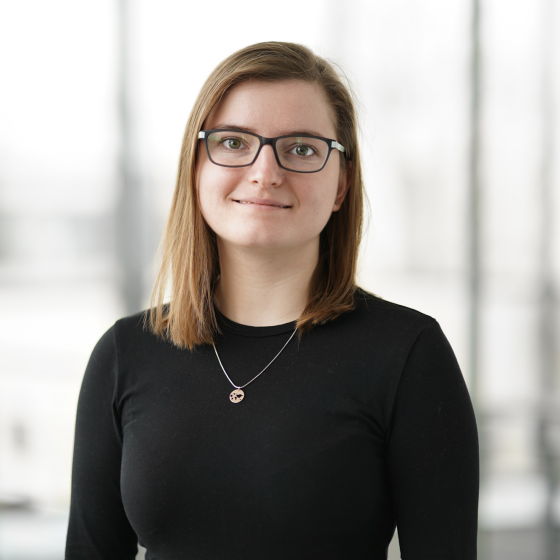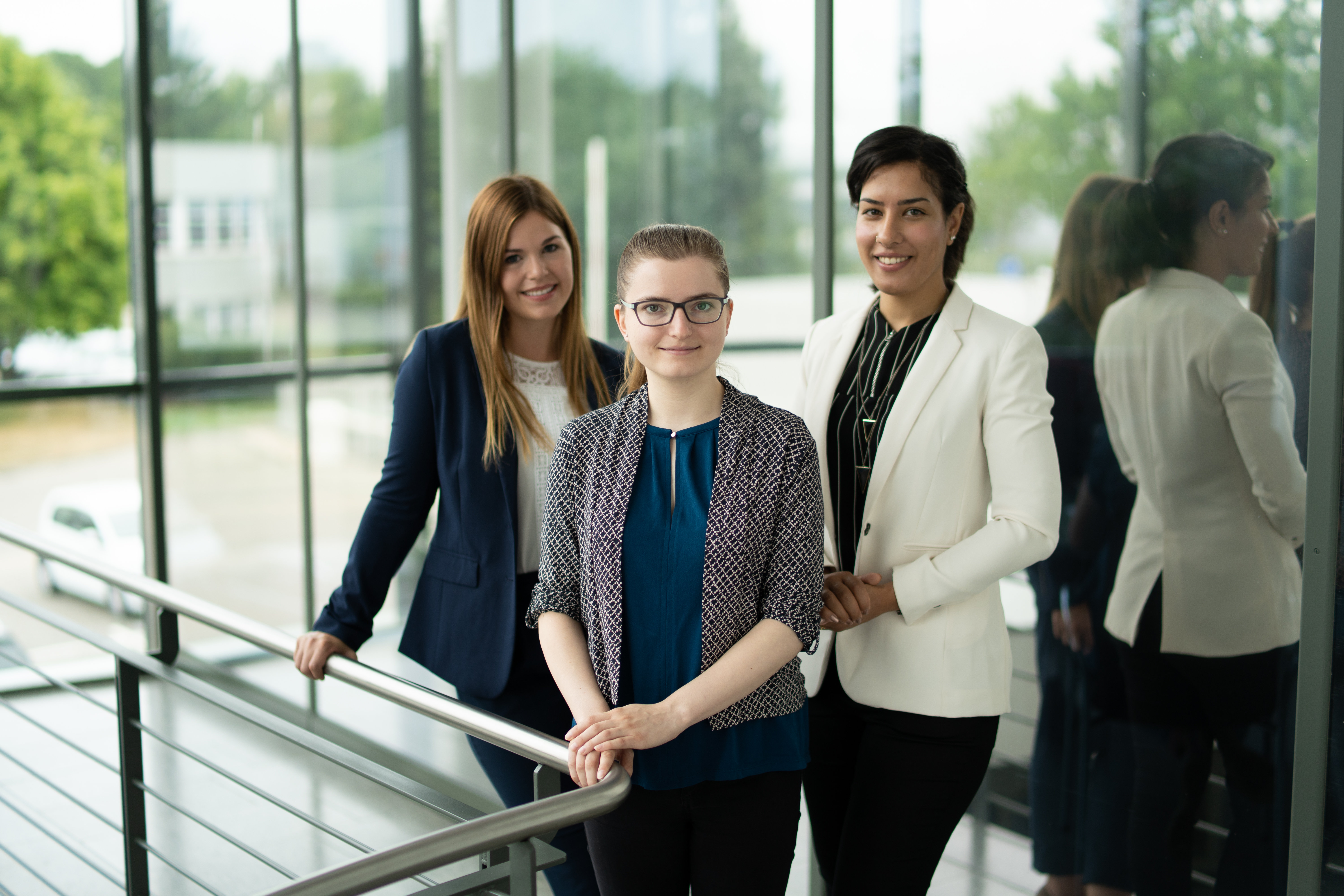
What is your name and what do you do at Schnellecke?
My name is Franziska and I have been at Schnellecke for just under nine months as a specialist trainee in the Business Development (BD) division. I support the teams on a wide variety of tenders, presentations and general concept development.
And what did you do before this trainee program?
Before I was hired, I completed my studies. I completed my bachelor’s degree in languages and business administration with a major in Chinese-speaking culture in Zwickau. In addition to its focus, the program is characterized above all by its threefold division into language, culture and business administration/logistics.
So you were already interested in logistics during your studies?
Yes, exactly! In business administration, we were supposed to specialize in one area. I chose logistics because I found it simply the most interesting. That ultimately influenced my search for a trainee position.
I then completed my master’s degree in international management. That had less to do with logistics, but still helped me to better understand the global networks and structures that are needed in logistics.
What is it about logistics that makes it so special for you?
Actually, the topic is always different, always varied. You are entrusted with tasks that are different. You have to come up with new ideas and try to approach things in a new way.
Let’s talk a little more about your division: What is actually meant by Business Development?
In summary, you process different requests for tenders. Automobile manufacturers need logistics services and send out a request for tenders to various logistics service providers. This can be for packaging orders or parts packaging, for example, right through to incoming goods and interim warehousing in order to send the goods to the plant or the recipient when they are called off.
I am currently assigned to supply logistics, where parts are sequenced and picked. Here, one of our tasks is to process orders and then submit our own quotations. Before that, for example, we have to check whether Schnellecke can fulfill the order at all (based on a wide variety of factors). This is followed by our own quotation and the creation of a concept: How many employees are needed, what are the pricing and other factors? Planning for empties also plays a role, for example.
These tenders come up again and again. We in Business Development try to win the orders.

What do you particularly like about the Trainee Program?
My tasks are quite varied because, for example, every tender is different from the others and you always first have to get to grips with it. At the beginning, it felt like jumping in at the deep end, because my colleagues had of course already been working on tenders when I joined the department. However, after getting a bit of help, I was already able to support them and was gradually taught the ropes. Many processes then became clear as I went along. Furthermore, my colleagues are all very nice and helpful. I can always ask if anything is unclear.
In contrast to the International Trainee Program, specialist trainees are anchored in their division for their entire time. What are the advantages of this approach and why do you think that is?
I think the biggest advantage is that you spend the whole year being trained and assigned to one department. If you are taken on after the trainee program, you already know a lot and need less orientation time. It’s more or less a probationary period.
Which doesn’t mean that we specialist trainees are necessarily only deployed in one and the same place. Among other things, the plan is to change teams every three months. This change is sometimes accompanied by a move, which in my case went smoothly and without any problems. In addition, you still have the opportunity to work abroad. For one tender that I was allowed to work on alone, I was with a customer in Sweden. We traveled to Stockholm for that.
Did you choose Business Development? Did you approach Schnellecke with a specific department or assignment in mind, or how can a trainee candidate envision this selection process?
I first applied for the International Trainee Program. In the interview, however, I was offered the Business Development division on the basis of my application, which definitely met my expectations. My application was then forwarded internally and when I received the acceptance letter, I also accepted.
And what do you think are the advantages of the International Trainee Program?
Graduates or people just starting out in their careers who aren’t yet sure exactly which department they want to work in later can get a comprehensive picture thanks to constantly changing from one corporate division to another. Furthermore, the International Trainee Program also includes a deployment abroad, which certainly has its appeal.
What has the Trainee Program at Schnellecke revealed to you so far? And what is perhaps still to come?
I have already been to several sites and had plant tours in Fallersleben and Wolfsburg. I also visited the Wackersdorf site with my colleagues to look at processes there. The aim was to be able to better evaluate the processes for tenders.
Planning something on a sheet of paper is always different from forming a picture on site. The site visit was intended to make it easier, for example, to identify parallels so that things can be implemented in the same or similar ways. It is simply a matter of understanding tenders better. To understand how the customer sees an order, what systems are used, how the processes are set up, and whether all of this can even be implemented under the given conditions.
You’ve been with Schnellecke for 9 months now. What do you think has been your biggest professional challenge so far?
Processing all the information. I had fewer points of contact with logistics in my post-graduate studies, so I had to brush up a little on all the knowledge again in order to be able to apply what I had learned to my job.
In addition to your colleagues, the HR department takes on a large part of the mentoring, right?
Yes, we are in frequent contact. The HR department also arranges deployments to other sites in collaboration with BD. I can exert a certain amount of influence myself on what I think could be a good fit. During the job interview, I was also advised to take a look at other sites.
As an employer, how does Schnellecke handle relocations or stays abroad? Can trainees expect support in this regard?
Yes, that’s right. Here in Wolfsburg, among other things, there is a really adequate trainee apartment which can use if we want. When we change sites, we are also provided with accommodation.
In general, I feel that all formalities have been well coordinated so far. For a seminar in Leipzig, for example, we were able to use a pool vehicle from the vehicle fleet.